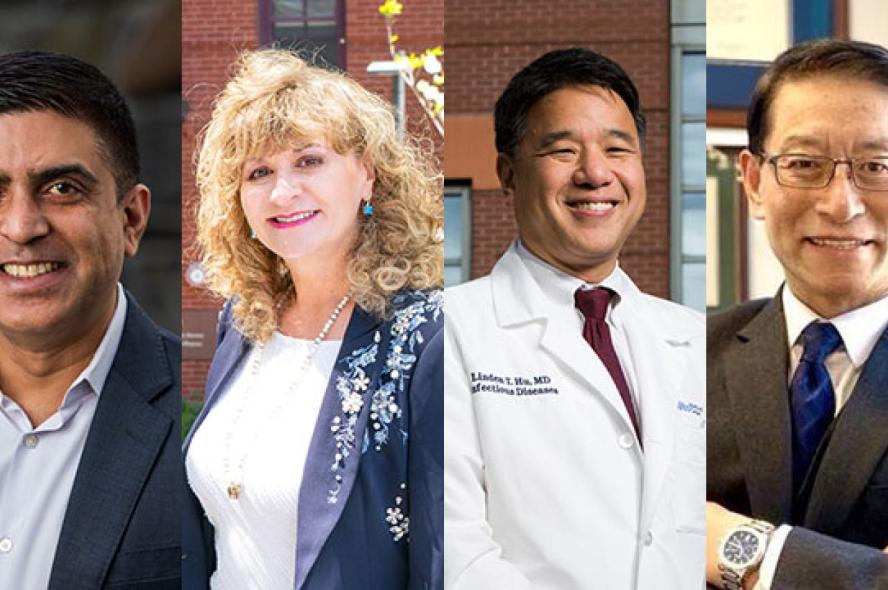-
About
- Departments & Offices
-
Academics
- Public Health
- Biomedical Sciences
- Physician Assistant
- Special Master’s (MBS)
-
Admissions & Financial Aid
- Tuition & Fees
-
Student Experience
-
- Student Resources by Program
- Academic & Student Support
- Wellness & Wellbeing
- Student Life
- Events & Traditions
-
-
Research
- Research Labs & Centers
- Tufts University-Tufts Medicine Research Enterprise
-
Local & Global Engagement
- Pathway & Enrichment Programs
- Global Health Programs
- Community Engagement
Tufts Ranks in Top 100 U.S. Universities Granted Utility Patents in 2023
Ranking reflects innovative research led by faculty across the university.

Tufts is again included in the top 100 U.S. universities granted utility patents in 2023 for scientific innovations with a potential to fuel technological breakthroughs that directly benefit society and human health.
Utility patents encompass scientific breakthroughs with the potential for technology transfer, or the process of translating academic discoveries and innovations into useful products that better the world. The 2023 list was published today by the National Academy of Inventors (NAI).
“The Tufts community can take pride in this recognition and what it reflects about the university,” said Bernard Arulanandam, vice provost for research. “While each patent is an achievement in its own right, taken together, they speak to the extraordinary inventiveness and dedication of our faculty and students. Every day they push the frontier of knowledge and its application to addressing the world's challenges.”
Patents acknowledge research of Tufts faculty across the university that is contributing to discoveries and innovations, many with promising health care implications. A number of these patents have been optioned or licensed by commercial parties for further development, including clinical trials. Twenty-two patents were awarded in total, with 13 going to advances in engineering. Tufts ranks 72 out of 100 on the NAI list.
Patents drawn from Tufts University School of Medicine include the following faculty:
Three patents were awarded to William Bachovchin, professor of developmental, molecular and chemical biology, in support of research on serine proteases and the translation of these findings into treatments and diagnostics for cell proliferative diseases like cancer. The patents cover compositions and their methods of use in radiopharmaceutical and imaging agents, enhancing cell-mediated immune response against cancers, and the efficacy of combination anti-cancer therapies—Caspase-1 and prostaglandin E2—and their role in regulating cell response to stress, inflammation and cell proliferative.
Rajendra Kumar-Singh, professor of developmental, molecular and chemical biology, was recognized for work demonstrating how peptides (short strings of amino acids, the building blocks of proteins) target and penetrate many cell types and tissues and support overall health. His two patents carry forward research on genetic therapies for two of the most common causes of blindness, retinitis pigmentosa and age-related macular degeneration.
Full list of TUSM patents recipients.
- William Bachovchin, Professor (Developmental, Molecular and Chemical Biology)
- Linden Hu, Chervinsky Professor (Immunology)
- Alan S. Kopin, Professor Emeritus
- Rajendra Kumar-Singh, Professor (Developmental, Molecular and Chemical Biology)